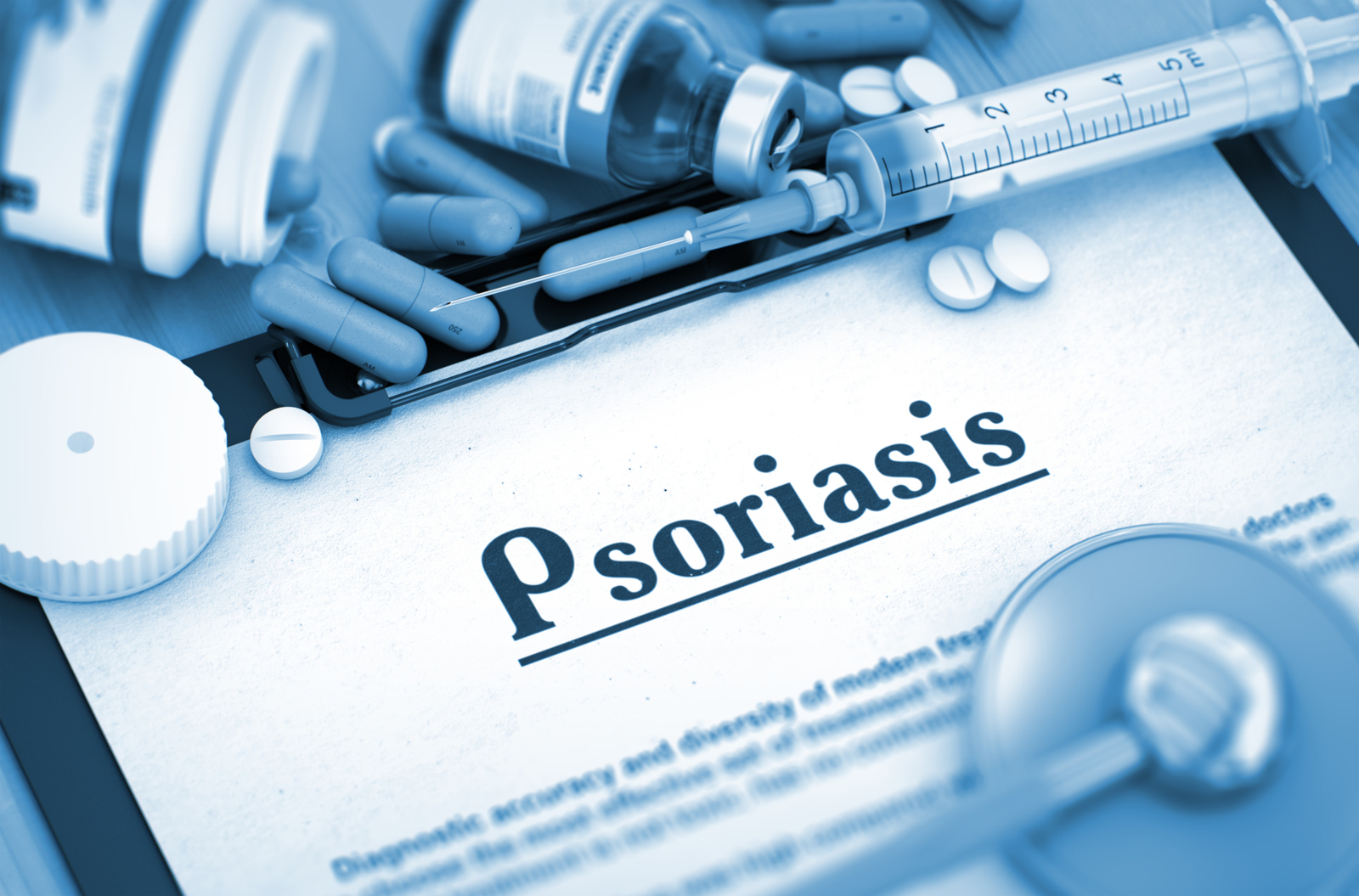
6 Health Conditions Linked to Psoriasis
Psoriasis is an autoimmune disease that chronically affects the skin, resulting in red, scaly patches. While the condition primarily impacts the skin, bodily swelling and insulin resistance is a critical component of psoriasis. This means that those with psoriasis may be more vulnerable to other chronic health issues—such as chronic obstructive pulmonary disease (COPD), heart disease, psoriatic arthritis and more. Here are six health conditions associated to psoriasis that patients should be aware of:
1. Psoriatic arthritis
Psoriatic arthritis is an autoimmune form of joint pain and inflammation that commonly accompanies psoriasis. The condition is due to the body’s immunity mistakenly targeting healthy cells and tissue. Psoriatic arthritis is a severe condition that affects any joint, resulting in swelling and stiffness. Studies show that up to 30% of people with psoriasis may develop psoriatic arthritis. To treat this condition, doctors may prescribe medications such as Skyrizi, Stelara, Cosentyx, or Tremfya, which aid in decreasing inflammation and alleviating pain.
2. Chronic obstructive pulmonary disease (COPD)
COPD is a group of chronic breathing conditions that affect the lungs and airways, and can severely impact one’s breathing ability. Patients with psoriasis are susceptible to COPD, which studies show increases with the severity of psoriasis because the inflammation associated with psoriasis might affect the lungs. To manage COPD, doctors may prescribe medications such as Xeljanx or Otezla.
3. Lymphoma
Lymphoma is an aggressive form of cancer that attacks the lymphatic system—a vital component in our bodies ability to fight infection. Patients infected by psoriasis are vulnerable to lymphoma because lymph node cells grow uncontrollably and become cancerous. However, it’s important to note that the risk is still relatively small. Treatment may involve chemotherapy or immunotherapy. In some cases, gene therapy or Rituximab may be prescribed.
4. Polycystic ovarian syndrome (PCOS)
PCOS is a hormonal condition that impacts women and can result in weight gain, acne, and irregular menstrual cycles. Women with psoriasis are prone to PCOS due to insulin resistance, according to several bodies of research. Lifestyle changes help control PCOS, such as losing weight, and medications, such as birth control pills or Metformin may be prescribed by gynecologists.
5. Depression
Feeling sad, hopeless, and experiencing fatigue are some of the common symptoms of depression, which is a prevalent mental health disorder. Individuals with psoriasis may develop depression. Studies think the link is TNF-alpha, a cytokine known to play an essential role in immunoregulation, which is triggered during psoriasis flare ups, and could potentially wreak havoc on the brain chemistry leading to emotional and mental suppression by influencing the release of serotonin, and triggering depression.
6. Heart disease
Psoriasis patients are prone to heart disease due to inflammation associated with psoriasis. Prolonged inflammation in the body affects the cardiovascular system and blood vessels. To manage heart issues, healthcare professionals suggest adopting a healthier lifestyle, which includes quitting smoking, consuming a nutritious diet, and engaging in regular exercise. Additionally, doctors may prescribe statins or other medications as needed.
While psoriasis is not cured, many treatment options for psoriasis can help manage indicators and reduce the threat of acquiring associated health conditions. Topical, phototherapy, systemic, and alternative therapies can effectively control psoriasis, read about more psoriasis treatments below:
- Topical treatments : Cams, ointments, and lotions are applied directly to the affected area. They can help reduce inflammation, itching, and scaling. Some common topical treatments include corticosteroids, vitamin D analogs, and retinoids.
- Phototherapy : Phototherapy is a treatment method that entails skin exposure to ultraviolet light in a doctor’s office or at home with a special light box. Phototherapy can help slow down the growth of skin cells and reduce inflammation.
- Systemic treatments : These are medications that are taken orally or by injection. They work throughout the body to reduce inflammation and slow down the growth of skin cells. Some common systemic treatments include methotrexate, Ilumya tildrakizumab, cyclosporine, and biological drugs such as Skyrizi, Stelara, Cosentyx, or Tremfya.
- Alternative therapies: Some people with psoriasis may find relief through alternative therapies such as acupuncture, massage, or herbal remedies. There is no accurate data to support these treatments, but they may be worth exploring if other treatments are ineffective.
Patients must work closely with their doctor to find the right treatment plan. People with psoriasis can lead healthy, fulfilling lives with proper treatment and management. New treatments, such as gene therapy, are also being explored, which may provide even more effective treatments.


